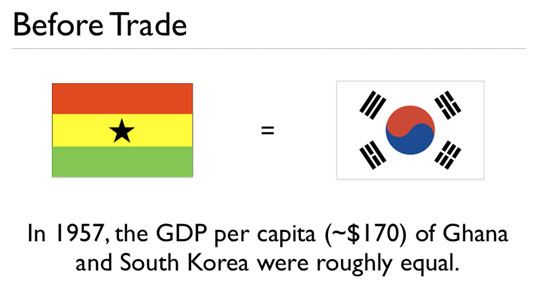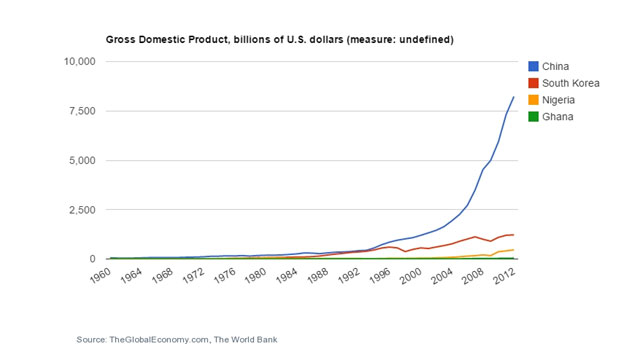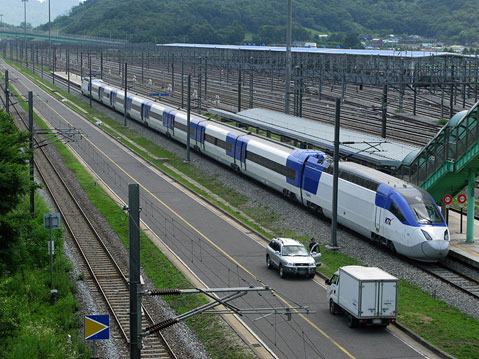 This discussion will take several parts to unfold because the subject is at the heart of how Africans will transform their societies from the current state of impoverishment into one of prosperity. Achieving prosperity is a point that I argued in my new book, “Unleashed a New of Paradigm of African Trade with the World,” that every African country from the smallest to the largest can do. The book traces the historical challenges that African countries have faced in trade. It examines the road of import-substitution industrialization, the debilitating effects on industrial and economic competitiveness and its centrality in the impoverishment of African countries. Unleashed draws the conclusion that export-oriented industrialization is the way for African countries to pull themselves up by their bootstrap and stand with the rest of the prosperous nations of the world.
This discussion will take several parts to unfold because the subject is at the heart of how Africans will transform their societies from the current state of impoverishment into one of prosperity. Achieving prosperity is a point that I argued in my new book, “Unleashed a New of Paradigm of African Trade with the World,” that every African country from the smallest to the largest can do. The book traces the historical challenges that African countries have faced in trade. It examines the road of import-substitution industrialization, the debilitating effects on industrial and economic competitiveness and its centrality in the impoverishment of African countries. Unleashed draws the conclusion that export-oriented industrialization is the way for African countries to pull themselves up by their bootstrap and stand with the rest of the prosperous nations of the world.
Failure to learn from past experience: Ebola Example

Without equivocation, it is necessary to state an obvious truism, which is that Africans learn hard. The statement is not an attempt at prognostication, but rather an extrapolative factuality founded on more than fifty years of historical actuality. Let’s use a glaring example from contemporary times. Science Insider published an interview, titled: “Nigerian Virologist Delivers Scathing Analysis of Africa’s Response to Ebola.” Dr. Oyewale Tomori, the interviewee, says: “This is not the first time Ebola has appeared in Africa. There have been more than 20 outbreaks since 1976. Not one of them has been declared a global problem. Of course, circumstances are different this time. But if we had been prepared, if we had learned from the past, we wouldn’t be where we are today.”
He should know because he was the WHO regional virologist for Africa during the outbreak of Ebola in Kikwit in D.R Congo in 1995, nineteen years ago! The key derivative indicting statement is in “if we had prepared, we wouldn’t be where we are today.” In spite of 20 (outbreaks) warnings about the dreaded disease and the potential for pandemic effect, African leaders did not treat it with the degree of urgency it deserved. They failed to account for the future and what it means to the people they are supposed to be shepherding, as in a shepherd being responsible for the sheep in his care. It is a classic case of the bad shepherd abandoning the sheep by failing to plan ahead for the welfare of their people. Another analogy is the one about the person who “built their house on a sand foundation and the storms came and great was its fall.” Unfortunately for their people and countries, African leaders have done it again and again. In this case, there are an estimated 5,000 to 10,000 deaths and everyone in the world is scurrying about trying to solve the problem for the so-called “big people,” the bumbling, hapless, clueless leaders of most African countries. It is mind-boggling that decades after independence African leaders still have not mastered the art of delivering competent governance and leaders do not know what the job of head of state is all about. They think the position is meant for enjoyment; as a result, the path to attaining it is a means to an end. The end being to be served, to enrich one-self and to perambulate as one having a divine right to the position rather than someone whose position depends on the vote.
Copying, learning from successful stories is virtuous
If South Korea were your home instead of Ghana you would…

Based on Dr. Tomori, maybe the phraseology should be Africans refuse to learn, which is inherently worse than Africans learn hard. One may be attributable to lack of ability, not having appropriate experience or countervailing circumstance. On the other hand, refuse to learn means that there is a consciousness to eschew good examples perhaps driven by a pride factor. “Refuse to learn” embodies a unique “cultural” characteristic of willingness to imbibe insidiousness by resisting learning about better ways of doing things in society that is extra-human. Taken together, based on historical precedence, said cultural character flaw seems to cause Africans to wallow in the same problems for decades on end. Like corruption, bad economic policy, bad execution of governance responsibilities, willingness to sell their people to the highest bidder and failure to solve decades-old problems that they see every day. The compendium of futility is virtually endless. As if the record of futility is not sufficiently odious, one finds African leaders, in word and deed, proceeding as if imbued with gravitas borne of running the best countries and societies in the world. Like they have all the answers and need nothing to disturb them as they drive the present and future aspirations of their people off the proverbial cliff.
Re-hashing import-substitution industrialization (ISI)
 In a lecture given by a leader in the financial sector of one of Africa’s largest countries, he discussed his view of the economic strategy that the country should adopt. He advocated an inward-looking strategy that eschews globalization with the objective of meeting domestic demand for goods and services. In other words, he outlined a repackaged import-substitution industrialization (ISI) strategy. The same one that has failed everywhere it was applied. That has impoverished and has been a curse on the economic prospects of African countries. It bears mentioning that import substitution industrialization is not an African creation. Rather, it was dreamed up by agents of former colonial administrators upon whom the new leaders of African countries relied on for counsel. In retrospect, it was a perfect Machiavellian conception borne of “empire by other means” strategy of former colonial masters.
In a lecture given by a leader in the financial sector of one of Africa’s largest countries, he discussed his view of the economic strategy that the country should adopt. He advocated an inward-looking strategy that eschews globalization with the objective of meeting domestic demand for goods and services. In other words, he outlined a repackaged import-substitution industrialization (ISI) strategy. The same one that has failed everywhere it was applied. That has impoverished and has been a curse on the economic prospects of African countries. It bears mentioning that import substitution industrialization is not an African creation. Rather, it was dreamed up by agents of former colonial administrators upon whom the new leaders of African countries relied on for counsel. In retrospect, it was a perfect Machiavellian conception borne of “empire by other means” strategy of former colonial masters.
His rationale was that African countries (including his own) do not have the experience of engaging in the global market and, as a result, are better off turning inward. It is apropos to direct people who are susceptible to being seduced by the string of degrees and title behind the fallacious argument to do a little research on South Korea, Taiwan and Hong Kong. It will illuminate that at the beginning of their industrial ascent, Asians (including Japanese) had (only) peripheral knowledge of Western countries. That is why when they first started their export drive, Americans considered Japanese products to be of junk quality. They (Asians) knew even less about the culture and had only average to minimal education but decided to take calculated risks and, as a result, built the trade juggernauts the world has come to recognize as the Asian Tigers. It’s all there in print, and it is live and in living color in the countries. If you can do it, it is highly recommended to visit Hong Kong, South Korea, Taipei, Shanghai and Singapore for the live evidence.
Are Africans incapable of learning what the Asians have learned?
It sounds reasonable to say that Africans cannot learn the intricacies of selling to people in rich countries and as such it is better that they concentrate on what they know, which is their local market. The danger of the perspective is in who holds it. In that sense, it is in the fact that it is being”sold” by someone in a very high-level position from which he can affect his nation’s economic policy and hence its destiny. That is a shame, but it is not surprising. Suffice to say that the perspective is wrong-headed. Africans are more exposed to the culture of rich countries now than the Asians were when they started to sell to them. The problem is not whether Africans can sell to rich countries because they have been selling to rich countries for centuries. The issue is what they are selling. African countries have come to the realization that exporting commodities are a dead-end and not the best strategy for economic prosperity. The issue now is to formulate a strategy of what to concentrate on selling to rich countries and marshaling all available resources to achieve the objective. To be continued in Part two….


